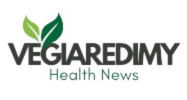
According to Bharat Bhise, many people opt to consume multivitamin supplements to prevent nutrient deficiencies that can cause numerous health issues. And, although consuming multivitamin supplements can help, they can also introduce side effects that can harm your health in other ways. Thus, the best way to maintain your health is to follow a balanced diet and consume healthy foods.
The Multivitamins
Here are a few foods you can eat to consume the most necessary multivitamins naturally:
1. Seaweed – Almost a third of the world suffers from iodine deficiency, especially in Southeast Asia, European countries, South Asia, and New Zealand. It is also common in people who follow a vegetarian or vegan diet and don’t use iodized salt. Iodine deficiency causes thyroid problems which can lead to neck swelling, unexpected weight gain, hair loss, fatigue, and other health issues. During pregnancy, iodine deficiency can increase the risk of developmental and intellectual abnormalities in babies.
Brown seaweed such as kombu and wakame are extremely rich sources of seaweed. Green seaweed such as nori also includes high amounts of iodine. It is recommended you don’t consume brown seaweed daily since it exceeds the RDI.
2. Liver – Among all the other parts and organs of an animal, the liver is the most nutrient-dense part that you can consume to get a healthy dose of multivitamins. For instance, animal liver is rich in vitamin B12, iron, vitamin A, copper, folate, and more.
Vitamin B12 helps to break down the micronutrients we consume and keep our blood and nerve cells healthy. Folate or folic acid helps to combat inflammation and prevent birth defects. Iron improves brain function, helps to create healthy red blood cells, and improves your energy levels.
Thus, if you are a non-vegetarian, consider including animal liver, especially beef liver, into your diet. However, ensure you limit your consumption of animal liver to once or twice a week. Otherwise, you can suffer from nutrient toxicity.
3. Shellfish – If you love consuming seafood, you should definitely include shellfish such as oysters and clams in your diet since they are highly nutritious. Oysters are abundant in vitamin B12 and zinc. Clams are rich in vitamin B12, selenium, potassium, and iron.
Generally, shellfish such as oysters and clams are a great way to meet the nutrient requirements of older adults. However, they are suitable for all age groups.
4. Kale – Kale is a member of the cabbage family and is one of the most nutrient-dense foods you can consume. It is high in vitamin K, vitamin A, and vitamin C but is low in calories. Vitamin K is critical for blood clotting and can also help maintain bone health. Vitamin C is required for the synthesis of collagen and provides many other health benefits.
Conclusion
Bharat Bhise suggests you don’t replace healthy foods with multivitamin supplements and get all your essential nutrients from a variety of foods. However, if you cannot maintain a balanced diet or eat well due to a bad work schedule or other factors, you can include multivitamin supplements in your diet.
